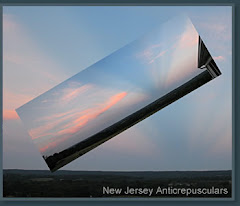Here in The Woodlands Texas, it WILL freeze in the winter. In Southeast Texas, often people ask what measures should be taken to protect property and vegetation here, especially if they have not lived here long. First, the natural native plants do not need protection. They will take zero degree weather. However, we must concern ourselves with decorative plants that are usually tropical or semitropical natively. Most can tolerate near freezing temperatures but must be protected when the thermometer drops below 32 degrees. We have several things to worry about. A frost will kill tropicals even above 32 degrees, so we must cover sensitive plants to keep the frost off of them. When the temperature dips below freezing, tropicals must be tightly protected. It is best if the soil is moist. I like to spray my garden with water on severe nights. That helps insulate the root system. Wrapping the plant in a sheet and securing it with string helps to keep warmth around the leaves and branches. However, in a hard freeze that places the temperature at or below about 25 degrees for more than about 6 hours, that often becomes an exercise in futility as well. In those cases, cover the ground and wrap the roots. You have a shot at saving the plant but it may be dead above the ground until summer. This past year, I had almost all my plants come back in the summer after a very hard freeze last year (18 degrees and below freezing for an entire day). The plants were not even covered, because we were out of town. This year, the same plants had living leaves on them after a 25-degree freeze lasting some 9 hours. Covering and insulating make a big difference to the survival and revival of the plant in the Spring.But you do not want the plants covered for an extended period of time. They need the sun. Depriving them of light for a long time will often damage them.
Protecting the home has other considerations.For light freezes, we do nothing. If the temperature gets below 26, then we take measures to protect non-insulated pipes. Many homes have no protection for their plastic pipes in the attic here. It is best if they are insulated, then you are less likely to have any pipes burst in the case of a hard freeze (below 25 degrees and the freeze lasting for 6+ hours). For a hard freeze, your automatic outdoor watering system is most at risk, along with the more obvious watering hoses. Your watering system has a back flow valve which protects your water supply from water flowing back from they yard. This valve is usually located close to the home and is quite vulnerable to a hard freeze. In the freeze of 2009, many homes had water flowing out from their backflow pipes after the freeze. Residents had to shut off the intake valve upstream of the backflow valve until they could get a replacement part. To protect this in a hard freeze, you can wrap it in insulated material. I use a small oiled tarp and completely wrap the exposed pipe and valve, tying it down with string to keep the wind from pushing air inside the insulation.
Finally, if the temperature drops severely for an extended time, the best course of action is to cut off your water to the house and open all the valves and facets to drain all water from the devices. Don't forget the hot water heater. Turn it off as well before going out of town. If you stay at home, you need not turn it off. We had a full week in a frozen state in the 1980's when the temperature never got above freezing outside. The ground froze that year! The temperature hovered just a few degrees above zero degrees F. for two nights and in the teens and low 20's the remainder of the week. Everyone should be aware that this could suddenly happen any year during the winter months. We usually have a four day warning that a hard freeze situation is possible. Cutting off the water supply should be done if you are traveling out of town for Christmas for more than three days every year you travel, regardless of the forecast. In fact, do it when you plan to be away for a week or more between November and March. Mid-December to the end of January is usually the worst of the winter here.
Friday, January 14, 2011
Subscribe to:
Post Comments (Atom)



No comments:
Post a Comment
Thank for for comments on your Woodlands Commentary webpage. Come back soon! ... Randy